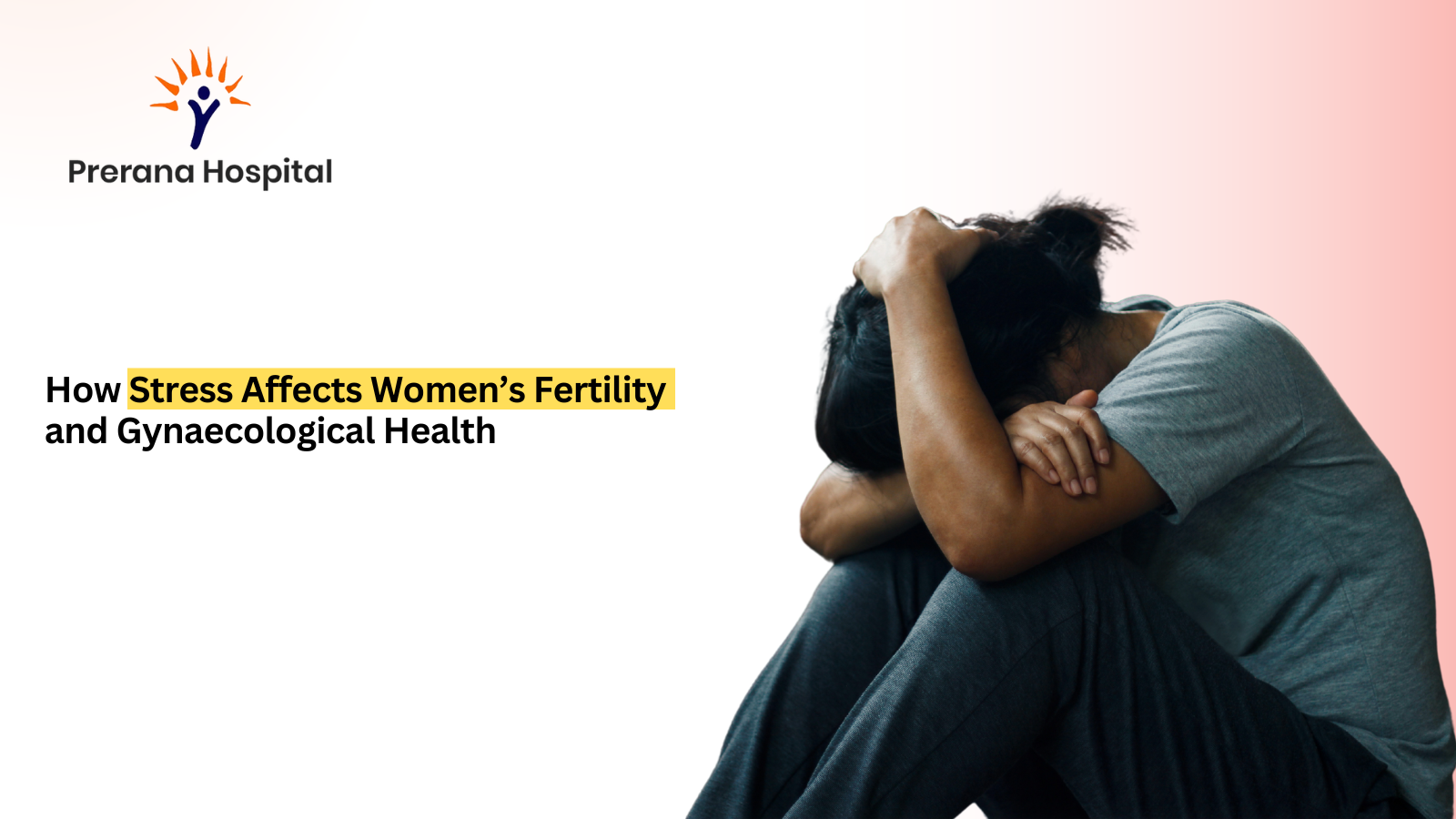

Please call +91 72042 70871 for outpatient appointments. The hospital is available for emergency 24/7.


Feeling low lately? It could be more than just a bad week. Stress has a profound impact on women’s health, particularly on reproductive health. Chronic stress can disrupt the hormonal balance that regulates menstrual cycles, ovulation, and fertility. The connection between stress and women’s gynaecological health is often overlooked, but it can have serious long-term effects.
In this blog, we’ll explore how stress affects women’s fertility and gynaecological health, and how managing stress can seriously improve your overall well-being and reproductive health.
When a person experiences stress, their body releases cortisol, a hormone which plays a pivotal role in the body's fight-or-flight response. Raised cortisol levels can interrupt the production of other hormones like oestrogen and progesterone, which regulate menstrual cycles, ovulation, and fertility.
Chronic stress can cause hormonal imbalances, causing irregular periods, delayed ovulation, and even anovulation (lack of ovulation). These disruptions can make it harder to conceive, as the timing of ovulation becomes less predictable. Managing stress is therefore essential to maintaining healthy hormone levels and supporting reproductive health.
Stress doesn't just affect fertility; it can also worsen existing gynaecological conditions:
Chronic stress can directly impact fertility, making it harder for women to conceive. Stress affects ovulation, which is necessary for conception. If stress is causing irregular or absent ovulation, it can decrease the chances of pregnancy.
Stress can also increase the chance of miscarriage. Research shows that women who experience elevated levels of stress may have a higher risk of early pregnancy loss due to hormonal imbalances and physical changes caused by stress.
Moreover, stress not only affects women, but male fertility can also be impacted. Mental health issues in male partners, such as stress and anxiety, can affect sperm quality, motility, and overall reproductive health. It’s important to recognise that both partners’ mental well-being plays a role in the fertility journey.
Managing stress is not only crucial for mental health but also for improving fertility and overall gynaecological health. Here are some practical tips to help you manage stress:
Stress management is fundamental to maintaining a healthy reproductive system and improving fertility outcomes.
Managing stress is necessary for maintaining overall health, hormonal balance, and fertility. Whether you're struggling with fertility issues or dealing with gynaecological conditions, stress can worsen symptoms and impact your well-being. It’s important to take informed steps to manage stress and seek professional support when needed.
If stress is affecting your fertility or gynaecological health, don’t wait. It’s time to take action. At Prerana Hospital, we offer personalised treatment plans designed to help you manage stress and restore hormonal balance. Our team of experts is here to guide you through stress management techniques, fertility care, and more.
Contact us today for a confidential consultation and start your journey toward a healthier, stress-free future.